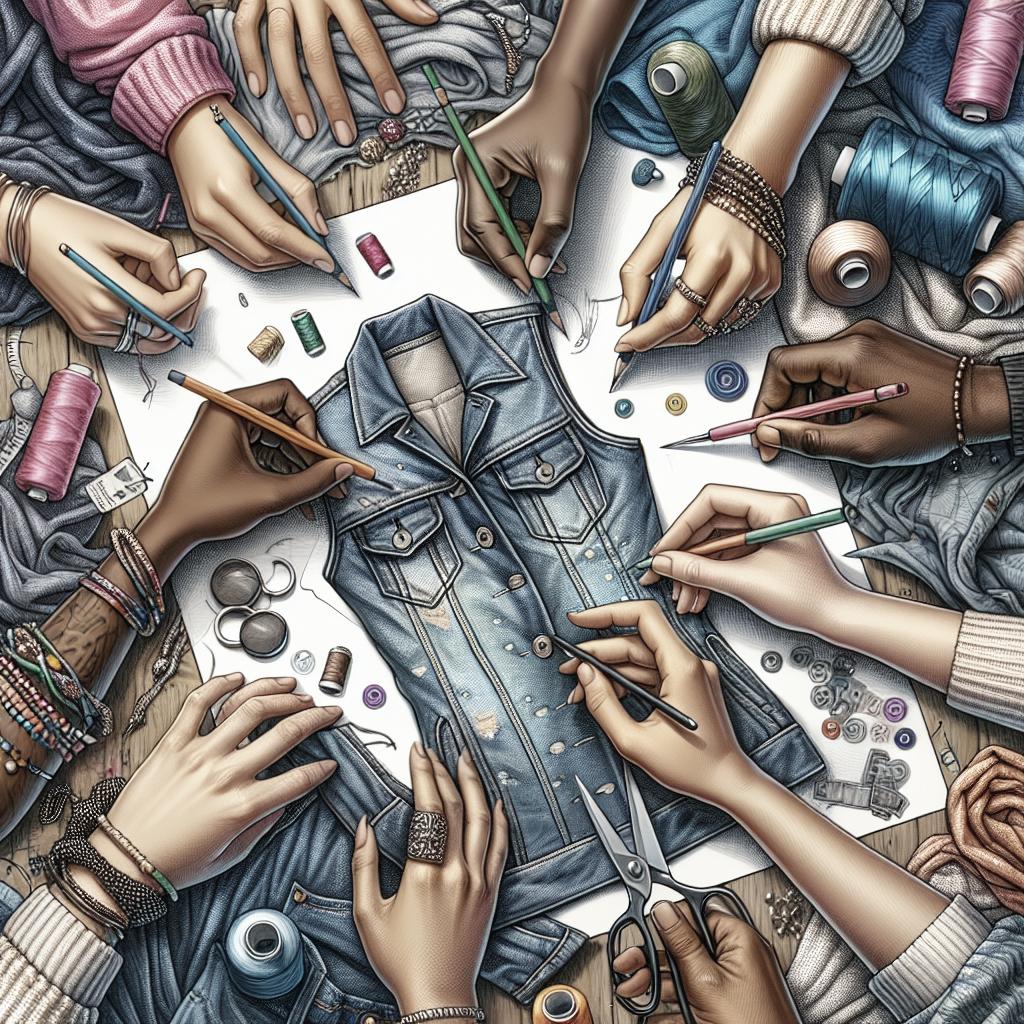“`html
How to Repurpose Old Clothes into Fashion-Forward Pieces
With the rise of fast fashion, more and more used clothes end up in landfills, posing a threat to the environment. Meanwhile, our closets are filled with clothes that don’t see much use. This blog post explores creative ways to alter, deconstruct, and upcycle old clothing into chic new pieces. We’ll delve into methods of repurposing clothing to not only stretch your creativity but also make a positive environmental impact. From transforming men’s jackets into bags to turning shirts into tank tops, the possibilities are endless. Discover the tools needed for these changes and learn shopping tips for your upcycling journey. A brighter, more fashionable future awaits with repurposed clothing.
Used clothing sent to landfills or donated
Every year, millions of tons of used clothing find their way to landfills, contributing significantly to environmental pollution. This disposal habit exacerbates resource waste and highlights the need for sustainable fashion solutions. In contrast, donating clothing is often viewed as an eco-friendly alternative, yet it fails to address the root problem of textile waste.
While donations can help, many items end up in overflowing charity shops or are shipped to developing countries, disrupting local economies. The key challenge is to create a balance between reusability and environmental stewardship, promoting methods that extend the lifespan of garments beyond their initial purpose.
Inactive clothing in our closets
Most of us are guilty of owning clothing that rarely gets worn. These inactive pieces clutter our closets and are a missed opportunity for creativity and resourcefulness. It’s time to reconsider the value of these neglected garments and explore how they can be transformed into something new and exciting.
This inactive clothing represents untapped potential. By rediscovering the forgotten items in our closets, we can embark on a journey of personal expression through sustainable fashion practices. It serves as an invitation to rethink what it means to own something truly valuable.
Alter clothing or deconstruct and make something new
Altering clothing can be as simple as taking a pair of scissors and making a few strategic cuts or using a sewing machine to adjust the fit. Basic alterations—such as hemming pants, changing buttons, or taking in a dress—can make clothes feel new again. With a little creativity, even dated pieces can look contemporary and fashion-forward.
Another route is to deconstruct items entirely, using the fabric as raw material for a new creation. Deconstruction allows for free rein in creativity, as garments can be entirely reimagined and refashioned into new, stylish pieces. This approach not only reinvigorates your wardrobe but also hones your design skills.
Upcycle clothing and repurpose into new clothes and accessories
Upcycling involves taking old or discarded items and refining them into higher-value products. When it comes to clothing, upcycling transforms used garments into trendy new outfits, accessories, or home decor, reducing the need for new fabric production.
Repurposing clothing into accessories like belts, bags, or scrunchies is an excellent way to extend the life of textiles while tapping into your creative potential. Each piece tells a unique story, making it not just a fashion item but a personal statement.
Clothing repurposing is a great way to stretch your creativity
Repurposing old clothes is more than a sustainable practice; it’s a creative endeavor that invites experimentation and innovation. Delve into a world where you can express your personal style by adding unique twists to conventional design concepts.
We offer a class called Upcycling Green Style that shows you how to upcycle clothing
For those unsure of where to start, joining a class like Upcycling Green Style can provide valuable insights and skills. Participating in an upcycling class provides hands-on experience and guidance, sparking creativity and supporting environmental awareness.
Tools and supplies used to upcycle clothing
To effectively upcycle clothing, gather essential tools such as scissors, a sewing machine, needles, threads, pins, and measuring tape. These basic supplies allow for a range of alterations, ensuring that your transformed pieces are neatly and securely finished.
Creative supplies like fabric dye, patches, and embellishments can also enhance your projects. These materials enable personalization and offer a way to express individuality, making upcycled items distinctly your own.
Examples of upcycled clothing
Men’s jacket transformed into a bag
Turning a men’s jacket into a stylish bag is a creative upcycling project that captures both form and function. The sturdy fabric of a jacket provides the perfect foundation for a durable bag, and elements like pockets can be cleverly repurposed as compartments.
Men’s shirt becomes a women’s tank top
Another ingenious way to upcycle is converting a men’s shirt into a woman’s tank top. By removing sleeves and altering the neckline, you can create a fashion-forward piece that is both comfortable and trendy. The transition from shirt to tank top exemplifies the versatility of fabrics.
Shopping tips
When gathering pieces for upcycling, look for durable fabrics and unique patterns. Flea markets, thrift shops, and online resale platforms are treasure troves for these finds, offering endless creative possibilities at an affordable cost.
Once you’ve spotted items with potential, envision how you’d like to transform them. Having a clear goal will guide your design process, ensuring you create something both practical and desirable.
Future Prospects
| Section | Key Points |
|---|---|
| Used clothing in landfills | Environmental impact, charity limitations |
| Inactive clothing | Creative opportunity, rediscovering closet potential |
| Alter or deconstruct | Alterations revive garments, deconstruction allows full transformation |
| Upcycling | Higher-value products, personal expression, new accessories |
| Creativity | Innovation, personal style expression |
| Tools and supplies | Essential tools, creative materials |
| Examples | Jacket to bag, shirt to tank top |
| Shopping Tips | Durable fabrics, envisioning potential |
“`
